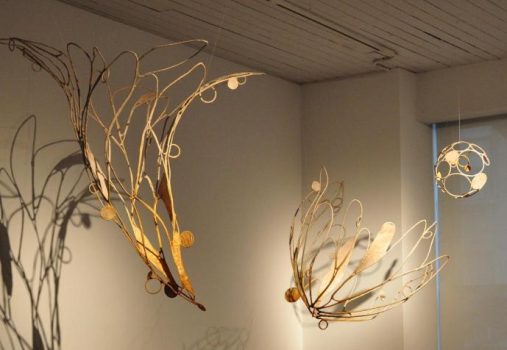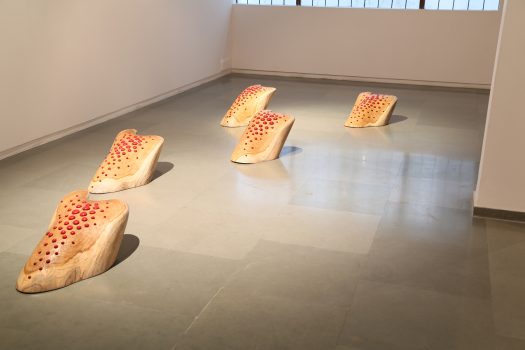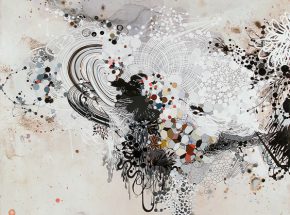

Ranjani Shettar is an artist in Bangalore, India where she presently lives and works. In 1998, she received her Bachelors in Sculpture and in 2000, Masters in Sculpture from Karnataka Chitrakala Parishath, Bangalore. Shettar creates sculptural installations that combine elements of nature and industry using a range of materials that include, beeswax, sawdust, wood, latex, PVC tubing, silicone rubber, and metal. Ranjani Shettar’s work is in the collection of the San Francisco Museum of Modern Art and has been the focus of several solo exhibitions including The Institute of Contemporary Art (ICA), Boston, MA (2008), The Modern Art Museum, Fort Worth, TX (2008–2009). Shettar’s group exhibitions include, Freeing the Line, Marian Goodman Gallery (2006), Zones of Contact, XV Sydney Biennale, Australia (2006), 9th Lyon Biennial, France (2007), and Life on Mars: 55th Carnegie International, Carnegie Museum of Art, Pittsburgh, PA (2008).
http://en.wikipedia.org/wiki/Ranjani_Shettar
With a precisely tuned sense of the symbolic and sacred potential in both organic and man-made materials, Ranjani Shettar makes art that functions within a broad dynamic of metaphysics and aesthetics. Her work draws inspiration from beliefs embedded in Indian culture and traditions, and entreats physical objects to be interlocutors with spiritual and intangible dimensions, a feature common to many religious and magical rites. Yet the substances the artist has employed are rarely emotive or precious. She often incorporates coconut fibers, resin, mud, cotton, plastic, terra-cotta, wax, twine, and metal in her work. There is an acknowledged resonance in Shettar’s art with the high-tech economic growth that is taking place in her home city of Bangalore, a leading force in the burgeoning IT and Internet sector. In light of Shettar’s engagement with spiritual connectedness and highly skilled craft, the global networks and dexterous labor of new technology offer a more secular paradigm for considering the consciousness of her art. Her work often demands a sensory and emotive response, and it frequently presents us with joyous compositions.
http://blog.cmoa.org/CI08/2008/02/ranjani-shettar.php


